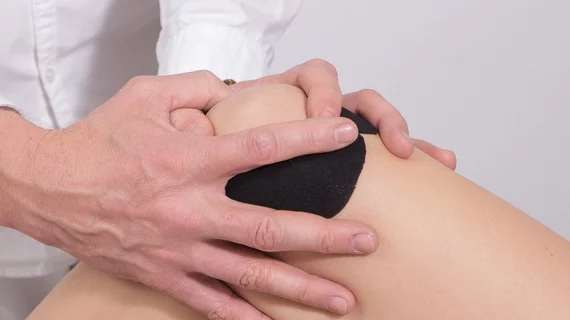AI-based prehab shortens hospital stays, lowers healthcare costs
An AI-based platform that prepares patients for total joint replacement surgery was associated with shorter hospital stays, according to a study published in the Annals of Translational Medicine.
The study results give a better picture of how prehabilitation with a telehealth platform can impact patients. The platform could also help patients thousands on surgery costs.
“Amidst the controversy surrounding the use of prehabilitation and telerehabilitation, the present study provides early evidence to support the benefits of prehabilitation with a telehealth platform,” Morad Chughtai, MD, orthopedic resident at the Cleveland Clinic, et al. wrote. “The utilization of prehabilitation in the current study showed decreased LOS (length of stay) and improved discharge disposition compared to the standard preoperative protocol.”
For the study, researchers analyzed AI-based platform PreHab’s effectiveness when used prior to a total knee arthroplasty (TKA) and its impact on short-term outcomes, like length of stay and discharge disposition. The platform is offered through San Francisco-based technology company PeerWell and allows providers to track a patient’s prehabilitation progress prior to a total joint replacement procedure. It also provides information about exercises, nutrition, home safety, reducing medical risks, and pain management prior to surgery.
A total of 476 patients who underwent TKA were included in the study––114 patients used the prehabilitation program and 362 patients (the control group) didn’t use it. The researchers then compared the hospital stays of the two groups and whether patients were discharged to their home, a skilled nursing facility or sent home with a health aide.
The average length of stay for the rehabilitation group was 2 days––significantly shorter than the control group’s 2.7-day average. Additionally, 77.2 percent of the prehabilitation patients went home without assistance, while just 42.8 percent of control patients went home without assistance. Researchers also found less than 2 percent of prehab patients were discharged to a skilled nursing facility (SNF), while about 22 percent of control group patients were discharged to one.
In a separate observational study, the platform was also associated with a 29 percent reduction in post-acute care use and savings of $1,215 per patient.
"We've known PreHab is an effective way to improve outcomes for total joint patients for years," Michael Mont, MD, vice president of strategic initiatives in orthopaedics at Northwell Health, said in a prepared statement. "The question, until now, has always been how to provide it to patients within the constraints of insurance. Now, thanks to autonomous tele-PreHab systems like PeerWell, we can solve this problem."

